jim crow
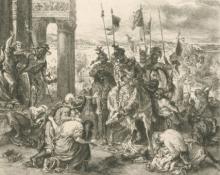
The conservative Twitterverse is all riled up because at Feb. 5 National Prayer Breakfast (an event founded and run by the secretive Christian organization known as The Fellowship), President Obama said that Christians, as well as Muslims, have at times committed atrocities. His words:
“Humanity has been grappling with these questions throughout human history. And lest we get on our high horse and think this is unique to some other place, remember that during the Crusades and the Inquisition, people committed terrible deeds in the name of Christ. In our home country, slavery and Jim Crow all too often was justified in the name of Christ.”
This would seem to be Religious History 101, but it was nonetheless met with shock and awe.
“Hey, American Christians–Obama just threw you under the bus in order to defend Islam,” wrote shock jock Michael Graham. Rep. Marlin Stutzman, R-Ind., called the comments “dangerously irresponsible.” The Catholic League’s Bill Donohue said: “Obama’s ignorance is astounding and his comparison is pernicious. The Crusades were a defensive Christian reaction against Muslim madmen of the Middle Ages.”
More thoughtfully, Russell Moore, president of the Southern Baptist Ethics and Religious Liberty Commission, called Obama’s comments about Christianity “an unfortunate attempt at a wrongheaded moral comparison. … The evil actions that he mentioned were clearly outside the moral parameters of Christianity itself and were met with overwhelming moral opposition from Christians.”
Really?
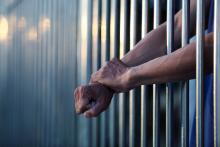
I HEAR A STIRRING, a rumbling. An awakening. Sometimes the sound is so faint, I worry it’s my imagination, my optimism getting the best of me. I pause, listen, and wait. Here it comes again. I want to rush to my window, fling it open, stick my head way out, and look around. Is it happening? For real this time? Is the sleeping giant finally waking up?
God knows we’ve slept too long.
Many of us—myself included—slept through a revolution. Actually, it was a counterrevolution that has blown back much of the progress that so many racial justice advocates risked their lives for. This counterrevolution occurred with barely a whimper of protest, even as a war was declared, one that purported to be aimed at “drugs.”
Really, the war took aim at people—overwhelmingly poor people and people of color—who were taken prisoner en masse and then relegated to a permanent, second-class status, stripped of basic civil and human rights such as the right to vote, the right to serve on juries, and the right to be free from legal discrimination in employment, housing, and access to education and public benefits. Branded “criminals” or “felons,” millions of people discovered that the very rights supposedly won in the civil rights movement no longer applied to them.
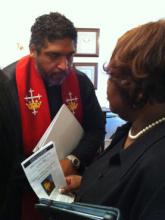
Recently, I marched with McDonald’s workers from three dozen cities to the company’s corporate headquarters outside of Chicago. After they refused to leave the corporate campus of the fast-food giant with its $5.6 billion in profits last year, 101 workers were arrested.
I knew I had to come when the workers invited me to share some of the lessons we have been learning in North Carolina about civil disobedience — and moral support.
I watched my new friends sit down. I watched the police gather. I prayed with the McDonald’s workers as the police looked on and then slapped plastic handcuffs on more than 100 of the workers and arrested them.
I could not help but think of the historic arc of the civil rights movement. For all the gains we have been making, the treatment of low-paid workers by some of the most profitable corporations in the world ranks high in the more significant causes of the growing inequalities in the U.S.
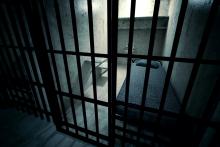
There is a moment in John Steinbeck’s classic, East of Eden, when readers witness the transformation of a stereotype into a human being.
Set in Salinas Valley, Calif., around the turn of the 20th century, Samuel Hamilton picks up Lee, his friend's Chinese servant. Lee wears a queue and speaks Pidgin English. Moments after meeting him, Hamilton learns that Lee was born in the U.S. and asks why he still can’t speak English.
Lee’s face and eyes soften and he speaks perfect English, explaining that he speaks Pidgin for the whites in town to understand him. Lee says, “You see what is, where most people see what they expect.”
Did you catch that? Lee plays the role of the foreigner in order to be seen and understood.


If you wonder what a right-wing political agenda laden with phony morality would look like, here are two signs.
First, from the increasingly shrill patriarch of Silicon Valley, venture capitalist Tom Perkins, the argument that rich people like him should get more votes in elections than poorer people.
Second, from the ever vigilant Kansas Legislature, a bill that would legalize segregation of gays in the name of protecting the religious freedom of those who loathe gays.
Perkins, of course, rode the gravy train to great wealth by backing those who actually did the work, took the risks, and built something.
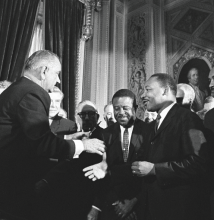
BACK IN THE day, when Stevie Wonder was Wishing “those days could come back once more,” my 6-, 7-, and 8-year-old friends and I had no idea what the heck he was talking about, but we loved the groove and would blast Wonder’s Songs in the Key of Life album from our front steps as we played in front of my house in our West Oak Lane neighborhood of Philadelphia.
Sometimes the boys would coast down the street on handmade skateboards, literally made of old skates—the kind with wheels you strapped to your shoes—nailed to short wooden planks. Sometimes the girls and boys would race each other down a steep street, flying at lightning speed on bikes and boards, to see who could make it first to the candy shop at the bottom of the hill. And sometimes, in all the play, a verbal sparring match would break out:
“You so big,” one friend would say, “it take two showerheads to clean yo big butt in the morning!” Then the 7-year-old sparring partner would come back: “Oh, yeah?! You so ugly, yo mama say ‘What dat?’ when she give birth to you!”
It would keep going and we’d all laugh out loud until someone got inappropriate. Usually inappropriateness began with three words: “Yo mama so ...” We all knew to never bring someone’s mother into the sparring match unless you wanted to fight for real. Those were fighting words.
This summer the Supreme Court got inappropriate. They spewed fighting words on the playground that is our national public square.
DURING THE unseasonably warm autumn of 1951, 22-year-old Martin King Jr. began his doctoral work in systematic theology at Boston University. Wearing his good suit in a stifling classroom, he was first introduced to the work of philosopher and ethicist Josiah Royce. King read Royce's well-regarded 1913 book The Problem of Christianity and wrestled with Royce's metaphysical values of loyalty, communitarian ideals, and the role of the individual within a group.
But don't let the high academic or philosophical language fool you. Royce was interested in only one thing: Love. It was the hidden heart of all his endeavors. And King began to study—and embrace—Royce's most important philosophical concept: the Beloved Community.
Though Royce had first written about the Beloved Community nearly 40 years earlier, King heard it in the context of his own time and place. He heard it in the context of the insidious Jim Crow laws of the South. In 1951 he also heard it in the context of the bitter race realities of the North. The July before King started classes at Harvard, a race riot had erupted in Cicero, Illinois, outside Chicago. A mob of whites attacked an apartment building that housed one black family, that of Harvey Clark Jr., a WW II veteran and bus driver who had moved into the all-white neighborhood.
The Dream is Freedom: Pauli Murray and American Democratic Faith, by Sarah Azaransky.
Certain moments in our nation's history have consistently opened the door for the least civil voices to enact evil through civil policy: think the institution of race-based U.S. slavery, the Indian removals, Jim Crow laws, legalized segregation, the federal protection of lynching mobs, and, don't forget, the Japanese internment camps, among others.
